Published and translated by the firm Winter – Dávila & Associés
Paris, 3 April 2023
Authors

David Winter
Lawyer in Spain and France, graduated in law from the University of Paris 1 – Panthéon Sorbonne (France). He has been a member of the Paris Bar since 2012 and of the Madrid Bar since 2018. He has the distinction of being a founding partner of Cabinet Montmartre, a prestigious law firm in Paris, as well as of Winter – Dávila & Associates, an international law firm composed of lawyers.
He is currently a member of the list of sports agents of the Paris Bar.

Arnaud De Brouwer
Arnaud is 23 years old and comes from Belgium. He has a Master 1 in Business Law and a Master 2 in Sports Law from the University of Lille. He is currently a student at EM Lyon in the MSc Sports Industry Management. Within the framework of his studies and his interest in sports, he decided to create « Jurisportiva », a media specialised in sports law, in spring 2020.
📍Versions of the article availables in others languages:
🇪🇸 Versión en Español
🇫🇷 Version Française
Do you need lawyers in France? Do not hesitate to contact us!
The specificity of football can be seen in the various FIFA rules. In the field of football, the FIFA Regulations on the Status and Transfer of Players (RSTP) require special rules to be taken into account, particularly in terms of breach of contract, dispute resolution, compensation for clubs that have invested in the training and education of young players, and the transfer of players. Today, we will focus on the first of these cases.
YOU CAN ALSO READ: Football transfer and loan contracts in France and worldwide
Following numerous abuses involving the non-payment of salaries of certain football players, the Fédération Internationale de Football (FIFA) decided to tighten up its regulations in April 2018 with circular no. 1625. This circular aimed at all member associations concerned the addition of several amendments to the Regulations on the Status and Transfer of Players (RSTJ), one of which, introduced in Article 14 bis, relates to the sanctions for the non-payment of two months’ wages.
As a reminder, unpaid salaries are one of the grounds for breach of contract. FIFA provides in Article 14 of the RSTP that in the presence of just cause, a contract may be terminated by either party, without financial or sporting consequences.
This article 14bis of the RSTP states that: “..In the case of a club unlawfully failing to pay a player at least two monthly salaries on their due dates, the player will be deemed to have a just cause to terminate his contract, provided that he has put the debtor club in default in writing and has granted a deadline of at least 15 days for the debtor club to fully comply with its financial obligation(s). Alternative provisions in contracts existing at the time of this provision coming into force may be considered…”
In other words, a professional football player whose club is a member of a FIFA has the possibility to terminate his contract with his club if he is not paid after two months. Previously, this period was three months.
With regard to the calculation, for salaries that are not paid on a monthly basis, the value corresponding to two months will be calculated on a pro rata basis.
It should be noted that some collective agreements negotiated by employers’ and employees’ representatives, where they are applicable at national level and comply with national legislation, may make an exception to the above principles. In such cases, the terms of the agreement, if any, will apply.
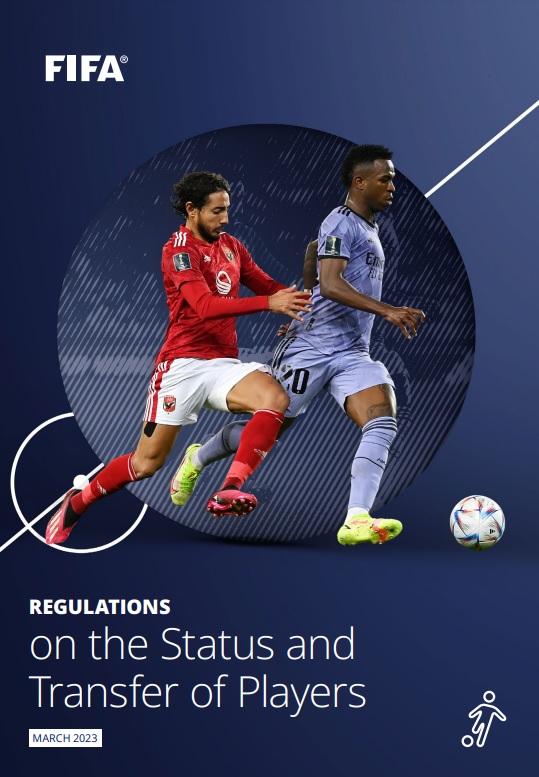
Photo: Fifa.com
In addition, FIFA has added an article 24 to the Regulations on the Status and Transfer of Players, which gives the FIFA Tribunal the right to impose sanctions on guilty clubs: this may include a ban on national or international recruitment until the money has been paid to the players. Sanctions are also foreseen against players, for example: a suspension from official matches until the sums due are paid.
This article 14bis has unblocked many contentious situations. Even today, a large number of disputes before FIFA or CAS concern the lack of or late payment by clubs to their players/coaches.
For example, in 2022, the player Zoumana Dagnogo won his case before the Dispute Resolution Chamber (18 May 2022) due to the lack of payment of two consecutive months’ wages by the Beninese club, Beke FC.
The latter was ordered to pay XAF 530,000 in arrears of remuneration, plus interest at the rate of 5% per annum, as well as XAF 1,140,000 in compensation for breach of contract without just cause, plus interest at the rate of 5% per annum from 16 March 2022 until the date of full payment.
Similarly, in an award (CAS 2021/ A/7861) recently notified to the parties (29 March 2023), CAS again confirmed on appeal that the non-payment of at least two months’ salary consecutively to a player constitutes just cause for termination of the contract.
Indeed, the well-known lawyer Rosalía Ortega, who defended the Spanish player H.L.M. against the club D.. in this case, indicated that the Court of Arbitration for Sport, in application of article 14bis, had ordered the club to pay the player USD 71,000.00 for unpaid wages and USD 161,000.00 for compensation, as provided for in article 17 (1) of the RSTP.
YOU CAN ALSO READ: Training compensation in football
In other words, both the Dispute Resolution Chamber of the FIFA Football Tribunal and CAS itself have established case law that correctly applies the reason why FIFA inserted Article 14bis into the RSTJ, which is none other than the protection of the player against abuses and retaliation by clubs that do not comply with the primary obligation to pay the player’s salary.
If you liked this topic, we invite you to share the article, comment on it and also to visit the rest of publications in the social networks and platforms of Winter – Dávila et Associés
If you want advice related to the subject of the article, do not hesitate to contact us! (email: contact@wdassocies.com)
Original language of the article: French
LEGAL NOTICE: This article has been prepared for informational purposes only. It is not a substitute for legal advice directed to particular circumstances. You should not take or refrain from taking any legal action based on the information contained without first seeking professional, individualized advice based on your own circumstances. The hiring of a lawyer is an important decision that should not be based solely on advertisements.
This article was published by Winter – Dávila & Associés, an international law firm based in Paris, in France, represented by lawyers specialized in sports law, corporate law, arbitration and representation.


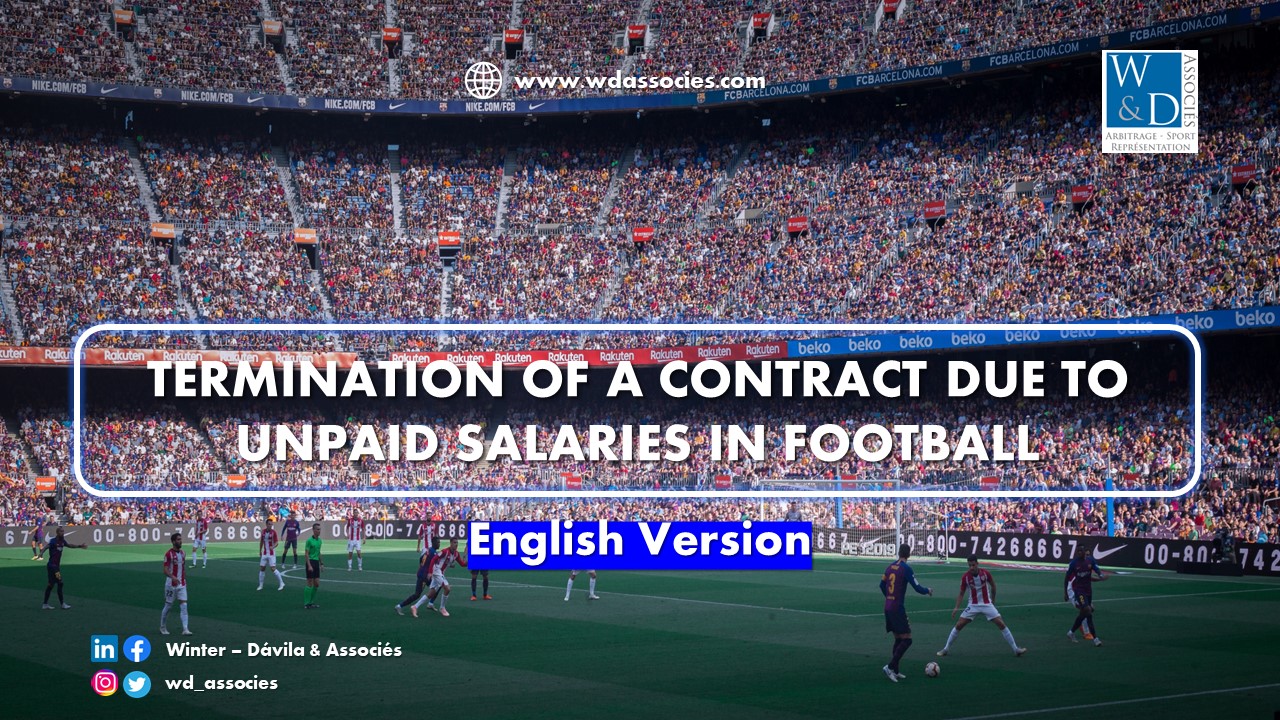
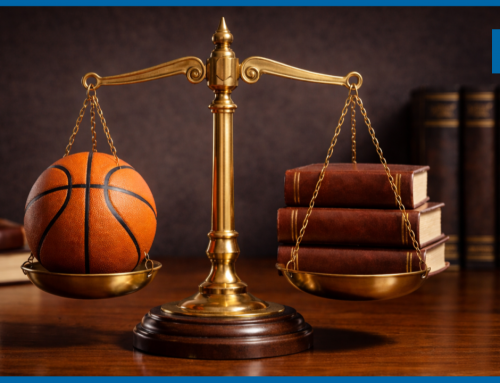
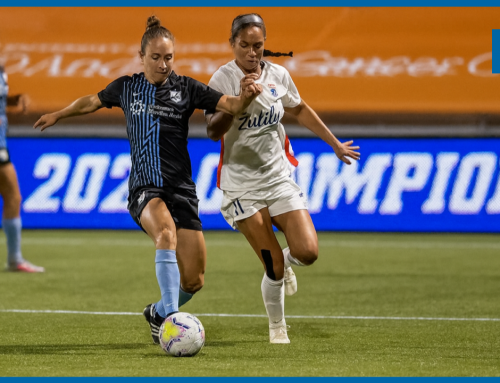
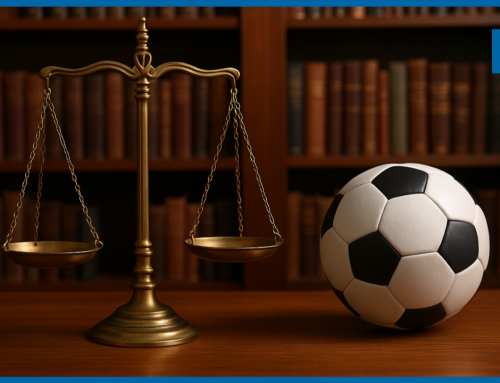


Leave A Comment